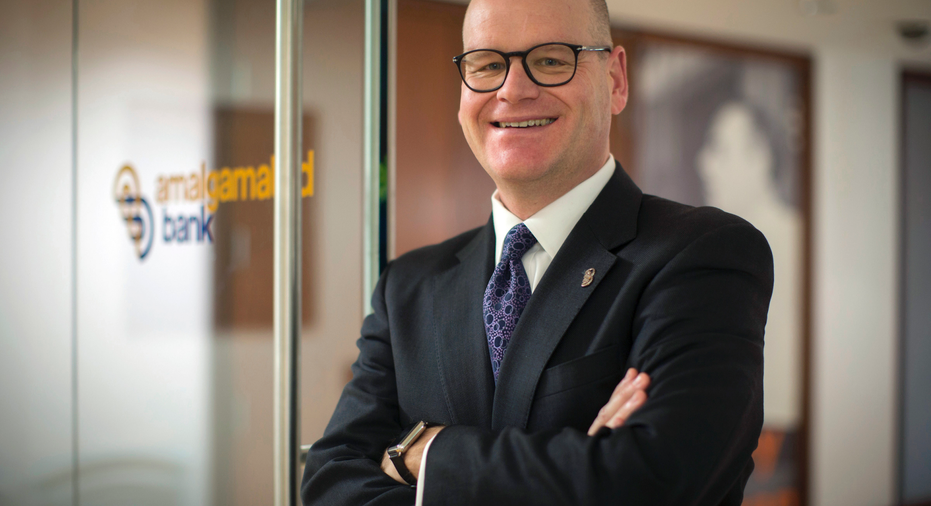Insider Q&A: Amalgamated Bank CEO Keith Mestrich

NEW YORK – Amalgamated Bank underwent the biggest change in its 95-year history this summer, going public on the Nasdaq stock exchange as the nation's only union-owned, publicly traded bank.
While the New York-based bank has a relatively small geographic reach, with branches in New York, New Jersey and California, it plays an outsized role in national affairs as the default bank for the Democratic Party and labor unions. It also plays an active role during election seasons in moving money around between donors and campaigns.
Keith Mestrich, the bank's chief executive, spoke to The Associated Press about recent changes at the bank and this year's election cycle.
Q. Why did Amalgamated go public?
A. We used to have three owners: the garment workers union and two private equity firms who made an investment in the company after the financial crisis. After several years, the private equity firms wanted an exit because they had generated a nice return on their investment. And the union has fundamentally changed since our founding in 1923 when there was a much more vibrant garment industry in this country. They wanted to take advantage of some of the investment that they've made in the bank.
But the more important reason we wanted to go public is to have access to the capital markets. I'm excited because having access to capital allows us to be able to grow. You don't find many companies bigger than five billion dollars in this industry that aren't public because you need that access to capital.
Q. How has your job changed now that you're running a public company?
A. We need to now more successfully balance the need to create long-term value for our shareholders and continue to have the fortitude and resilience to be able to live true to our mission-oriented principles as a worker-focused bank.
Q. How has this year's election season benefited you?
A. We have become the institutional bank of the Democratic Party, many of its candidates, and many of the action committees, Super PACs, and other organizations. It's been good business for us. We have roughly $400 million in terms of political deposits right now, which is sort of the height of the season. We'll see a large chunk of that money run out because you don't want to wake up the day after Election Day, if you're a politician, and have money left in the bank and have lost. But then the fundraising cycle has become a permanent fixture and so we will see those balances increase again relatively rapidly.
Q. Banks taking positions on issues —marijuana and gun rights, for example — has become increasingly common this year. Amalgamated always had public positions on issues, so what's your take on this industry development?
A. We take positions on places where we think we can make a difference as an employer. We were big advocates for the $15 minimum wage. We take positions on things where we think there's something that we can say in either how we do business, or economic issues of the day. Oftentimes we celebrate the work that many of our clients do. I don't think it's appropriate for the bank necessarily to have a position on something like reproductive rights. But we certainly are going to celebrate the work of our clients, like NARAL and Planned Parenthood and others.
Many banks are trying to be the every-person bank. They want to appeal to everybody of a particular geographic area. Most of our customers come to us, because they have values and a political persuasion that leans one way. They expect us to celebrate the work of our customers, or take positions on certain things.
I recognize we're unique in that respect, because we have that unique customer base. But that really is part of our business model, and it's been part of why we've been successful.
___
The interview has been edited for clarity and length.



















